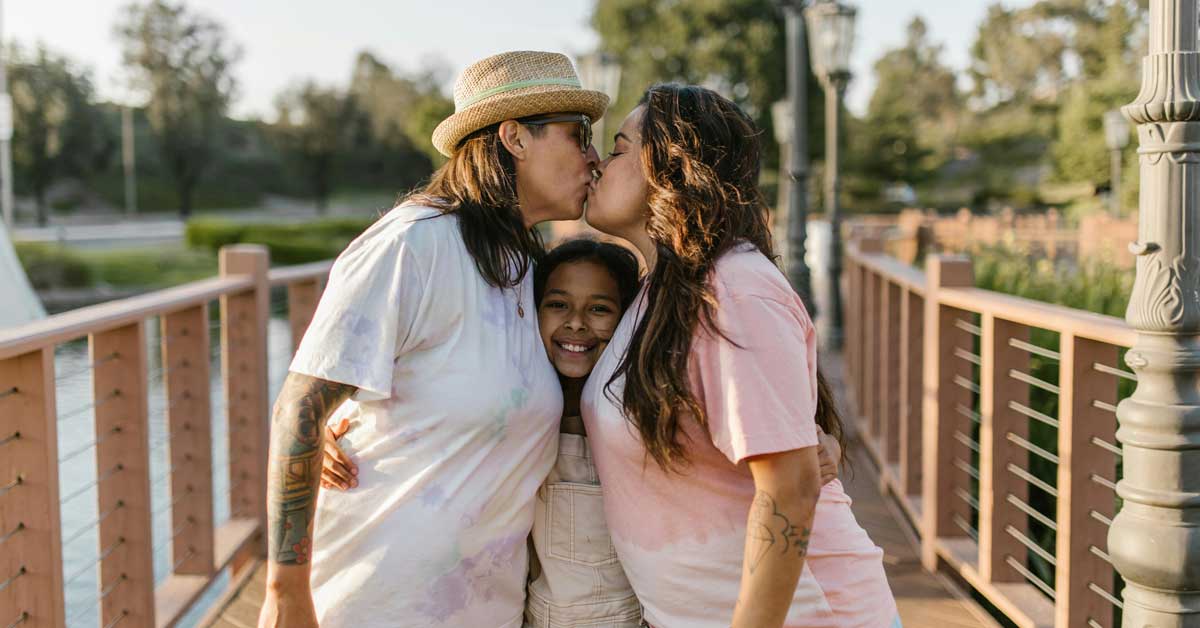LGBTQ+ workers who are misgendered by their employers or blocked from accessing restrooms consistent with their gender identity will now get additional workplace protections as a result of new guidance issued April 29 by the Equal Employment Opportunity Commission.
It's the first time in 25 years that the EEOC has issued new rules on workplace discrimination — a change precipitated in part by the 2020 Supreme Court case Bostock v. Clayton County, the landmark decision that found that LGBTQ+ workers are protected from workplace discrimination.
"We are really pleased to be issuing this guidance today to reflect our commitment to protecting everyone, and particularly those really vulnerable persons from underserved communities, from harassment in the workplace," said Charlotte Burrows, the chair of the EEOC, during a call with reporters announcing the changes.
As reported in an article by The 19th, under the new guidance, employers who consistently call workers by the wrong pronouns or name could be found to be creating a hostile work environment.
Similarly, denying an employee access to a bathroom, or other sex-segregated facility such as a lactation or changing room, appropriate with their gender identity could be committing workplace harassment. The guidance goes into effect immediately.
The EEOC's guidance is not law, but it does indicate how the commission will interpret harassment cases that are brought to the agency, which is responsible for enforcing civil rights workplace protections.
This year, for example, the commission settled a case with several trucking companies that allegedly harassed and then fired two gay mechanics because of their sexual orientation. The companies had to pay $460,000 "and furnish significant equitable relief" as part of the settlement.
Burrows said the new guidance was necessary because harassment is pervasive in American workplaces. Employer bias on the basis of race, sex, disability or another characteristic made up more than a third of the cases the EEOC reviewed between fiscal years 2016 and 2023.
But the agency had not issued new guidance on the matter since 1999, so, in October, the EEOC began to take public comments as it prepared to make updates.
Staff reviewed about 38,000 comments to arrive at the new guidance, which consolidated and replaced five separate guidance documents issued by the EEOC between 1987 and 1999.
The new guidance also details protections that extend to remote workers and pregnant workers.

"We really talk about the proliferation of virtual work environments … online harassment does occur," Burrows said. "The bottom line is: If the conduct is sufficiently tied to the workplace, has consequences in the workplace, and contributes to an employee's hostile work environment, then that legal analysis as to whether or not it violates our civil rights laws is really going to be the same."
For LGBTQ+ workers, the EEOC's guidance strengthens the impact of the 2020 Bostock decision, affecting an estimated 3.6 million employees. It also clarifies the requirements for employers.
Emily Martin, the chief program officer for the National Women's Law Center, said in a statement that the guidance "makes clear that federal law does not allow workplaces to be in the business of using harassment to enforce sex stereotypes about how employees should live, present, or identify. This is illegal discrimination, plain and simple."
The guidelines were approved by a 3-2 vote in the five-member commission, including by Commissioner Kalpana Kotagal.
"The guidance reflects important developments affirming that individuals are protected against harassment on the basis of sexual orientation and gender identity," Kotagal said in a statement, adding that it also "answers the call of the #MeToo movement, which shined a bright light on the ripple effects of harassment and the need for urgent cultural and legal change."
But Commissioner Andrea Lucas, who opposed the new guidance, said it "effectively eliminates single-sex workplace facilities" and impinges on women's rights in the workplace, a controversial conservative talking point that many LGBTQ+ advocates say unnecessarily pits transgender people's rights and women's rights against each other.
Lucas, who was appointed by former President Donald Trump, said in a statement that "women's sex-based rights in the workplace are under attack."
"There is no conflict between demanding rights for women and for all transgender people," said Ria Tabacco Mar, director of the ACLU's Women's Rights Project, in a statement.
"Attacking trans people does nothing to address the real problems women face. As feminists, we reject efforts to appropriate the rhetoric of 'women's rights' to inflict harm on trans people, men or women."
Instead, the move by the EEOC is a recognition of the challenges in modern workplaces, wrote ACLU senior staff attorney Gillian Thomas, "where the #MeToo movement, overdue reckoning with our nation's violent racist history, and recognition of LGBTQ people's right to be free from workplace discrimination, among other developments, have brought harassment's perniciousness into sharp relief."
This article was originally published by Stacker and was republished with permission.



